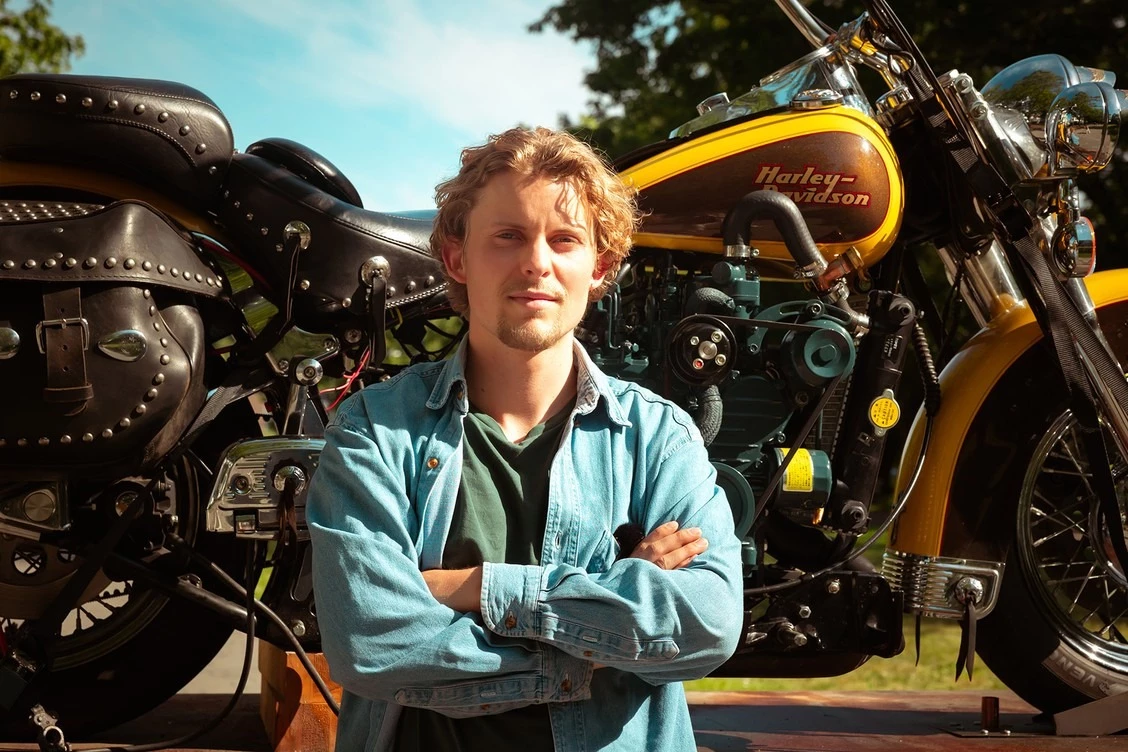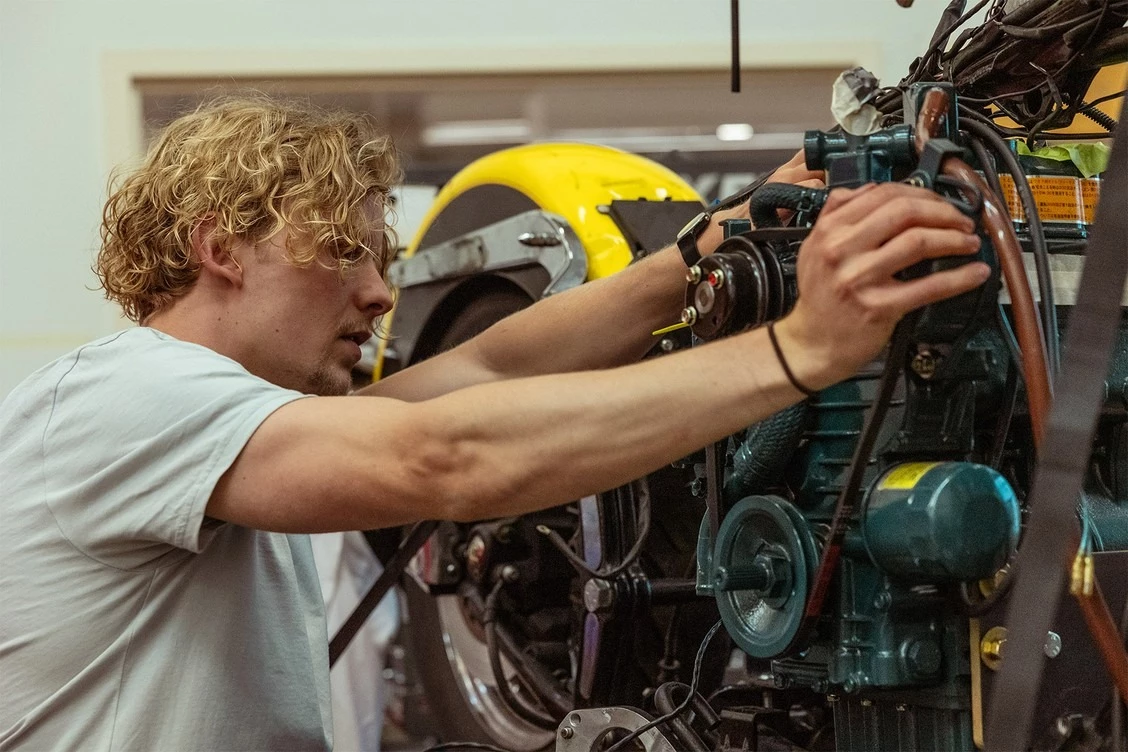"EVs are green, EVs are environmentally-friendly," blah, blah, blah … That may be true, but who needs a Tesla supercharger when you can simply fill your motorcycle with some leftover restaurant grease and happily chug along the road?
Well, it’s not exactly grease, but hey, it’s pretty close. Biodiesel, to be precise. And it’s not all motorcycles; it’s specifically this modified 1999 Harley-Davidson Heritage Softail. Why exactly? Simple: to prove that it works.
A team led by Alex Jennison, a 22 year-old engineering student from the University of British Columbia, came up with a brilliant solution for reducing carbon emissions from the university's heavy machinery, like gardening equipment, trucks, and other vehicles.
And what better way to demonstrate the solution than to install a tractor engine on an old Harley and run it on used vegetable oil?
And get this: the lad is currently on a 1,200-mile (1,931-km) ride down the western coast of the United States on this very bike. But why only a Harley? And why this particular 1999 Heritage Softail?
"I chose the 1999 Harley-Davidson because it is the last model to have the engine and gearbox separated instead of mated together," Jennison told Canadian automotive website Driving.
After tearing apart the bike, the first step was to install a three-cylinder Kubota tractor engine that traditionally runs on diesel. Kubota gifted the engine to Jennison and his project partners, to demonstrate that clean fuels are viable.
"Everybody modifies their Harley-Davidson motorbikes, personalizing them," he said. "The idea was to bridge the old and the new, doing something outrageous to an iconic motorcycle that everyone recognizes."
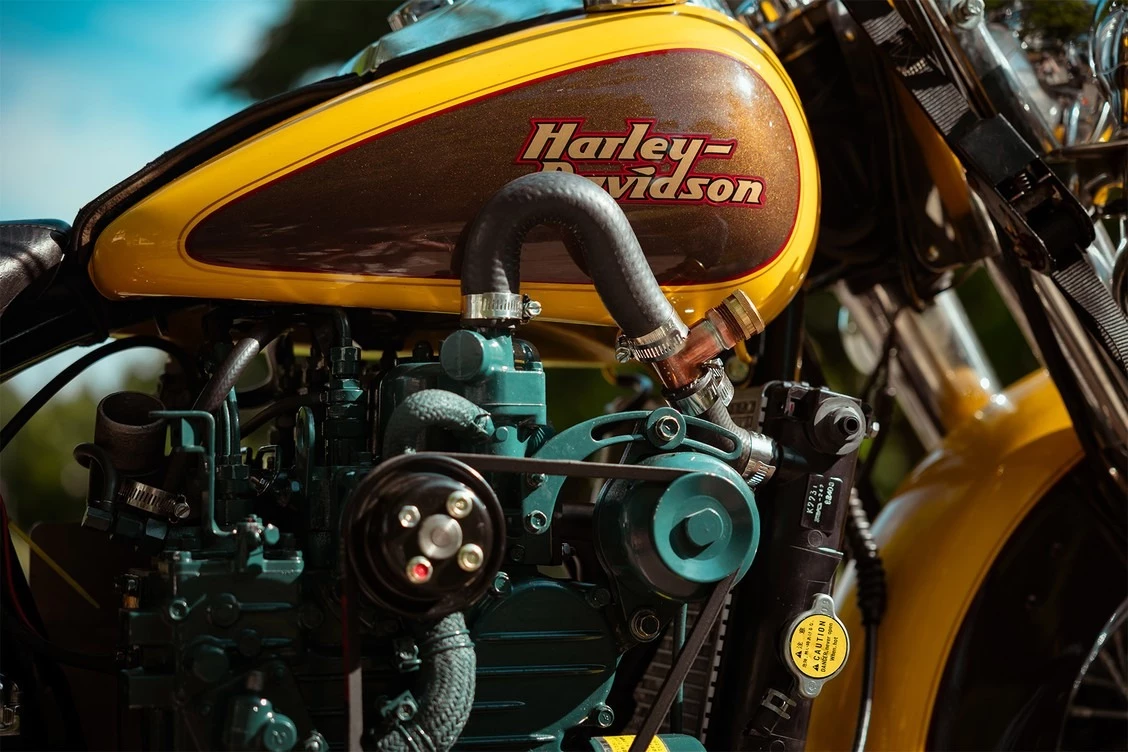
The exact engine specs aren’t revealed in Jennison’s YouTube videos, but our friends at VisorDown believe it could well be a 1,647cc D1703 motor with a peak power output of around 35 horsepower.
"After 12 months of scrambling at how to put a diesel tractor engine in a motorcycle (late nights, machining, welding, and begging for technical advice) – I’ve built a biodiesel-powered Harley Davidson from scratch. Not for profit. Not for show. But to prove a point: Clean fuels are viable today," reads Jennison’s LinkedIn post.
He continues, "Most university and municipal fleets still run on diesel, and heavy-duty electric vehicles still rely on materials like cobalt, mined by children, women, and men in the DRC, seven of whom die a week in collapsed mines. Copper – extracted by burning Amazon basin ecosystems to the ground."
Jennison explains that on campus, restaurants pay to have used vegetable oil in fryers hauled away. "You could take vegetable oil that is usually thrown away and put it through a chemical process to use it to power equipment so the UBC fleet could run on waste oil from its own cafeterias," he adds.
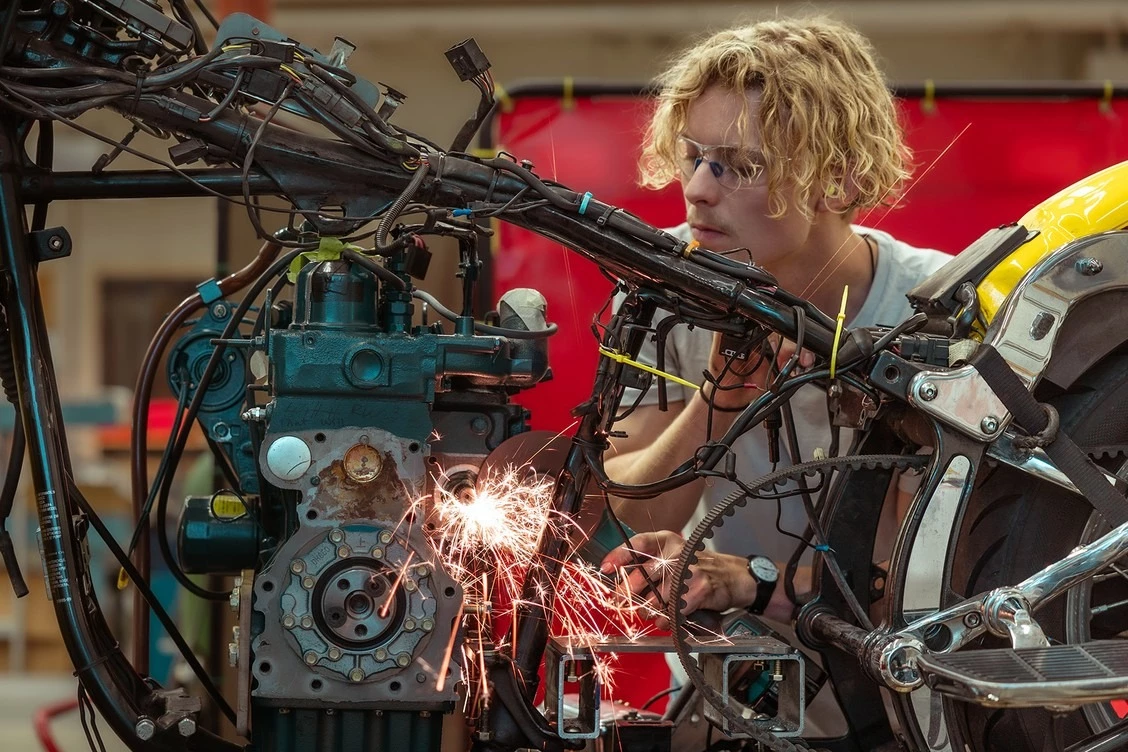
In addition to working on the bike from scratch, redesigning the engine to run on fry grease, and cramming it into the Harley frame, the team of students collaborated with UBC's 400-vehicle fleet operator to develop cold-climate-compatible biodiesel technology, which Jennison claims decreases CO2 emissions by a mammoth 74%!
That stat is the very reason this concept exists. To prove that there are greener and cleaner fuels than those which currently exist. That and the fact that EVs still rely on rare earth materials, whose sourcing still raises ethical concerns, including forced labour and so-called eco-colonialism.
Jennison describes the diesel-powered Harley as "a rolling proof of concept," demonstrating the fuel's real-world use. His team’s goal is to gather enough money through GoFundMe to allow Jennison to continue the road journey, to prove that the idea is viable.
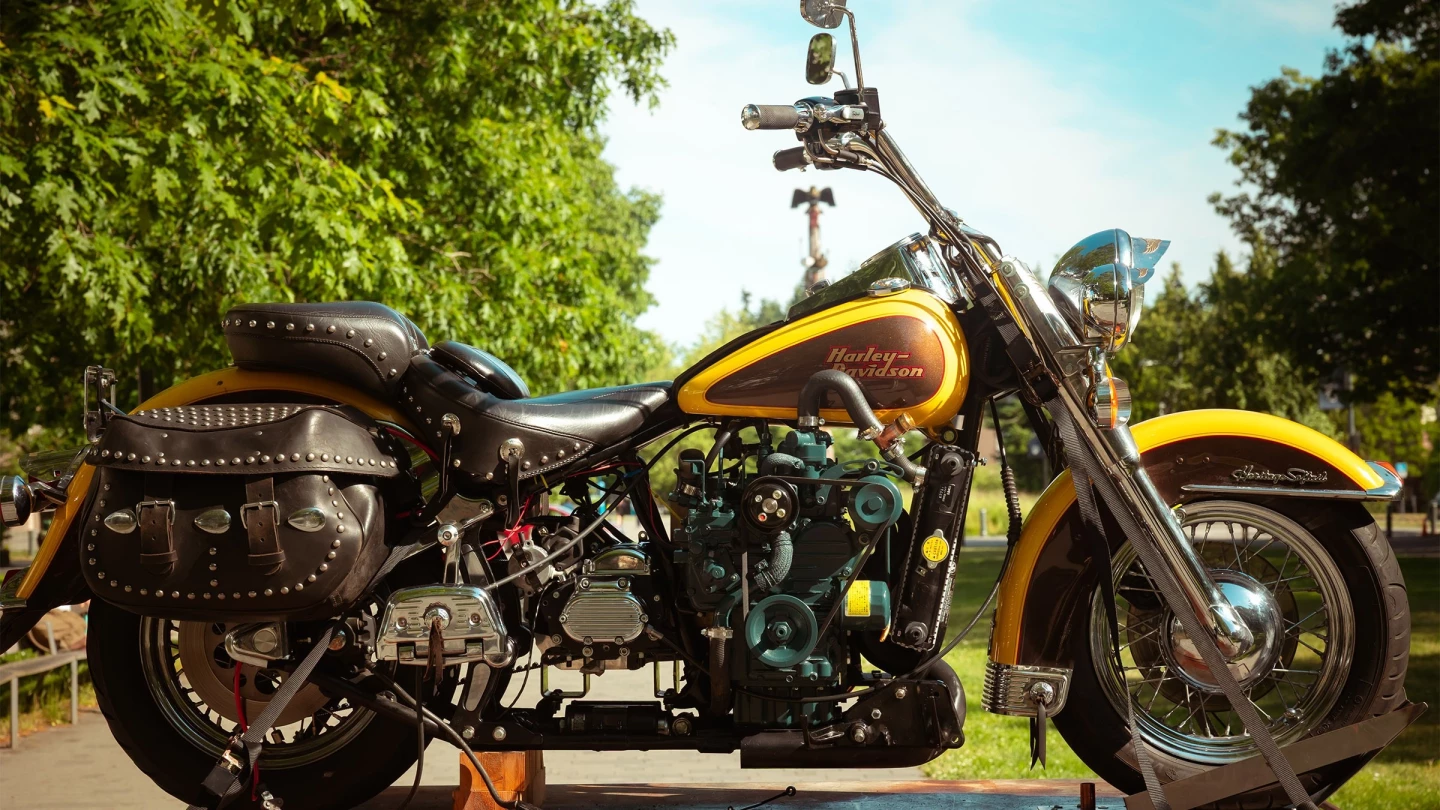
Source: GoFundMe


